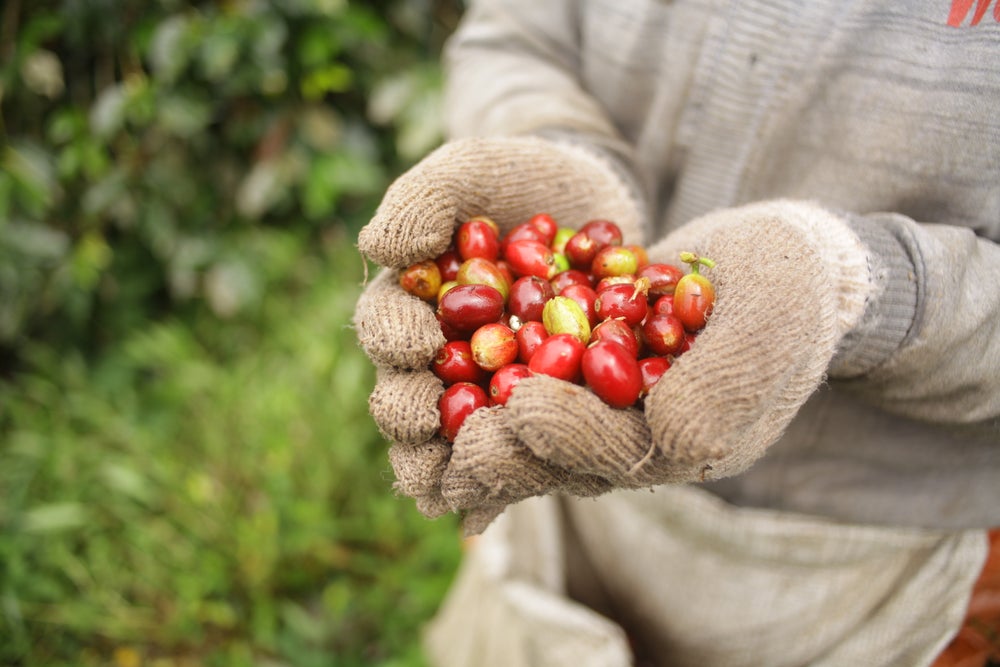About This Coffee
Sadayana is named for the Sundanese word for working together. The Sunda are one of the three largest ethnic groups on Java and the area where Sadayana washing station is located is majority Sundanese. Approximately 200 farmers deliver cherry to Sadayana washing station.
Sucafina financed the construction of Sadayana washing station in March 2022. The station is operated by a local partner and farmers contributing cherry to the station have access to Sucafina services including agronomic support and affordable seedlings.
Harvest & Post-Harvest
While Indonesia is known for its Wet Hulled processing method, a increasing number of cooperatives and processors are expanding their processing methods. This helps them tap into new markets.
Farmers selectively handpick ripe, red cherry and deliver it to Sadayana washing station. At intake, cherry is floated in a mechanical siphon and pulped. Coffee is placed in a ceramic tile-lined fermentation tank and fermented for 16 hours. Following fermentation, parchment is washed in clean water and then laid to dry on raised beds. Parchment is raked frequently to ensure even drying. It takes 7 to 15 days for parchment to dry.
Coffee in Indonesia
Indonesia has a long coffee producing history, but recently their coffees have been overlooked by the specialty market. Thanks to our innovative and ever-expanding supply chain, we are proud to bring you high-quality coffees from many of Indonesia’s unique regions, accompanied by in-depth traceability information.
Indonesia is perhaps best known for its unique wet hulling process (giling basah). Though its exact origins are unclear, wet hulling most likely originated in Aceh during the late 1970s.
Wet hulling’s popularity can be attributed to producers’ need for prompt payments. It was also adopted specifically by many producers who lacked the drying infrastructure that was needed to shelter drying parchment from the high humidity and inconsistent rainfall typical in Sumatra. At higher elevations with constant humidity and unpredictable rainfall, drying can prove to be slow, risky and difficult.

